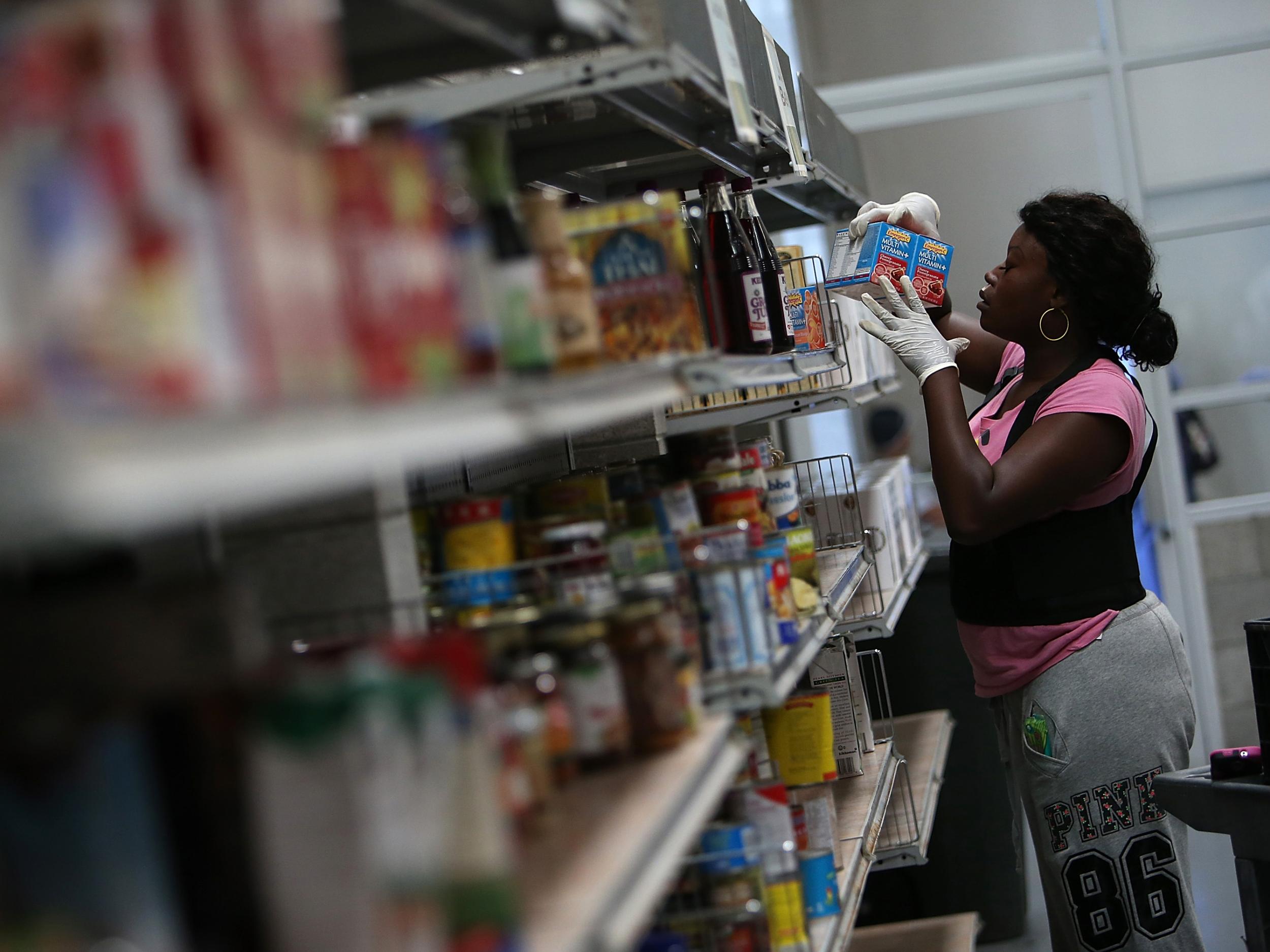Trump administration plan 'would cut food stamps for millions of people'
20 million American households rely on food stamps

Your support helps us to tell the story
From reproductive rights to climate change to Big Tech, The Independent is on the ground when the story is developing. Whether it's investigating the financials of Elon Musk's pro-Trump PAC or producing our latest documentary, 'The A Word', which shines a light on the American women fighting for reproductive rights, we know how important it is to parse out the facts from the messaging.
At such a critical moment in US history, we need reporters on the ground. Your donation allows us to keep sending journalists to speak to both sides of the story.
The Independent is trusted by Americans across the entire political spectrum. And unlike many other quality news outlets, we choose not to lock Americans out of our reporting and analysis with paywalls. We believe quality journalism should be available to everyone, paid for by those who can afford it.
Your support makes all the difference.Millions of poor people could lose access to vital food stamps under proposed rule changes by the Trump administration.
New rules proposed by the Department of Agriculture (USDA) would see stricter work requirements for food stamp eligibility, and change the way 40 states enrol families into the programme, officially called Supplemental Nutrition Assistance Program (SNAP).
Approximately 20 million households with 40 million individuals used the SNAP program in in 2018, which gives people a monthly supplement to buy nutritious food in the form of a special debit card.
Now an in-depth study on the rules’ likely effects - by the Urban Institute - concluded that 3.7 million fewer people would receive SNAP in a typical month, 2.2 million households would see their average monthly benefits drop by $127, and almost a million students would lose access to free or reduced lunches.
Some states would be particularly badly hit. Nevada, for instance, could see up to 22 per cent of recipients lose access to food stamps.
In seven states, however, the changes would give more people food stamp access. These include Missouri, Tennessee, Utah and Virginia.
Craig Gundersen, an agricultural and consumer economics professor at the University of Illinois at Urbana-Champaign who has studied the program for more than two decades, said 50 per cent of the 3.7 million SNAP beneficiaries were already food insecure.
"The essential goal of the program is to mitigate hunger and its consequences in the United States,” he told NBC News.
"Anything that impedes SNAP of doing that is very problematic as it leads to food insecurity in our country."
The USDA believes the changes will reduce the SNAP budget by about $4.2bn.
In a USA Today column, secretary of agriculture Sonny Perdue said: “At USDA, our informal motto is ‘Do Right and Feed Everyone’. With these proposed improvements, we will ‘do right’ by the taxpayers and restore the dignity of work to the able-bodied who receive SNAP benefits.
"And, we will ‘feed everyone’ by ensuring the health and stability of SNAP for those who truly need it.”
Join our commenting forum
Join thought-provoking conversations, follow other Independent readers and see their replies
Comments